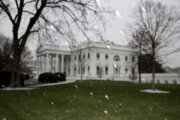As part of its initiative to curb junk fees, the Biden administration is setting its sights on retirement plans.
In October, the Department of Labor proposed a rule aimed at closing loopholes and requiring financial advisors to provide retirement advice in the best interest of clients. It would expand on the current fiduciary standard that covers advice related to purchasing securities to include types of nonsecurities, affecting recommendations for IRA rollovers and advice to retirement plan sponsors and employers.
The initiative also aims to reduce junk fees in retirement products such as individual retirement accounts and 401(k)s. To understand President Joe Biden’s crackdown on junk fees, consider:
— How much Americans pay in junk fees.
— What the proposal to crack down on junk fees includes.
— How the rule would impact the financial industry.
— What you can do to avoid junk fees.
— Best practices to work with a financial advisor.
How Much Americans Pay in Junk Fees
When retirement advisors meet with consumers, they often make suggestions about investment products. Some firms pay their financial advisors a higher commission for recommending certain options over others, which could lead them to recommend an investment product that isn’t in the best interest of the saver.
This creates a conflict of interest, and consumers could lose out on investment earnings if they choose products that are not suited to their situation. For instance, the Biden Administration points to research from the White House Council of Economic Advisers that says conflicts of interest surrounding the sale of fixed index annuities could lead savers to collectively lose as much as $5 billion a year.
What the Proposal to Crack Down on Junk Fees Includes
The rule, part of a broad effort by the Biden administration to slash junk fees in everything from rent to airfare to concert tickets, would create changes in three specific areas to lower fees for Americans preparing for retirement. These are related to closing loopholes in the purchase of any investment product, advice given about IRA rollovers and recommendations for 401(k)s and other company-sponsored plans.
Closing Loopholes in the Purchase of Any Investment Product
Currently, recommendations for buying securities such as mutual funds must be in the best interest of retail investors, per the Securities and Exchange Commission. However, the SEC’s guidelines don’t usually cover commodities or insurance products. States oversee the advice for purchasing insurance products.
The new rule would change this and require retirement advisers to provide advice in the best interest of the consumer for the purchase of commodities and insurance products.
IRA Rollover Advice
In 2022, Americans rolled over about $779 billion from retirement plans such as 401(k)s into IRAs, according to research and consulting firm Cerulli Associates. Under current regulations, advice that is given on a one-time basis is usually not required to be in the best interest of the consumer. The proposed rule would change this and make it necessary to give one-time advice in a saver’s best interest, including suggestions for IRA rollovers.
Recommendations for 401(k)s and Other Company-Sponsored Plans
Advisors share suggestions with plan sponsors about which types of investments to include in retirement accounts like 401(k)s. Currently, these recommendations are not subject to the SEC’s Regulation Best Interest. The new rule would change this and make it necessary to give consumers access to investments that are in their best interest.
[READ: Ways to Avoid 401(k) Fees and Penalties]
How the Rule Would Impact the Financial Industry
Financial advisors who act in the best interest of clients are known as fiduciaries. They are ethically and legally bound to put their clients’ interests ahead of their own.
“Perhaps the easiest way to understand the intended effect of the proposed rule is to envision a fiduciary umbrella,” said Matthew Eickman, national retirement practice leader for Qualified Plan Advisors in Overland Park, Kansas, in an email. “The current fiduciary umbrella provides the opportunity for strong coverage of assets while they’re in the retirement plan but most often doesn’t extend to recommendations to move assets out of a plan or what to do once the assets leave the plan.”
The proposed rule would expand that umbrella to provide greater transparency in those situations. This could provide “more investor-specific protections relating to an individual’s particular retirement savings account,” Eickman said.
What You Can Do to Avoid Junk Fees
One way to keep a careful eye on the costs associated with your investments is to read the fine print and ask questions about the fees. If your 401(k) is professionally managed, you may be charged a management fee or assets under management fee.
“Typical 401(k) investment fees run anywhere from 0.25% to 2% a year,” said Pam Krueger, founder of advisor matching platform Wealthramp in Belvedere Tiburon, California, in an email.
“You are charged a fee for the funds you hold within your retirement accounts as well,” said Kendall Meade, certified financial planner at SoFi in Charleston, South Carolina, in an email.
You can look for a fee attached to mutual funds and exchange-traded funds that is often called the expense ratio. “Keep this cost in mind as you are choosing investments,” Meade said. “Actively managed funds typically have a higher expense ratio than passively managed funds.”
Check for additional charges such as administrative fees and record-keeping expenses. Sometimes the employer may cover part of the cost, and other times you could be charged.
[READ What to Know About Financial Advisor Fees and Costs]
Best Practices for Working With a Financial Advisor
As you look for a professional to help you manage your long-term plan, consider their credentials and experience and understand how they are paid. “Don’t choose a nonfiduciary advisor who is not legally on the hook to have your best interests and who doesn’t have a game plan to keep fees down as part of your strategy to maximize returns and reduce risk,” Krueger said. “You need somebody on your side.”
More from U.S. News
Ways to Avoid 401(k) Fees and Penalties
How to Get Overdraft Fees Waived
Ways to Track Your Financial Health
Biden?s Crackdown on Junk Fees in Retirement Plans originally appeared on usnews.com







